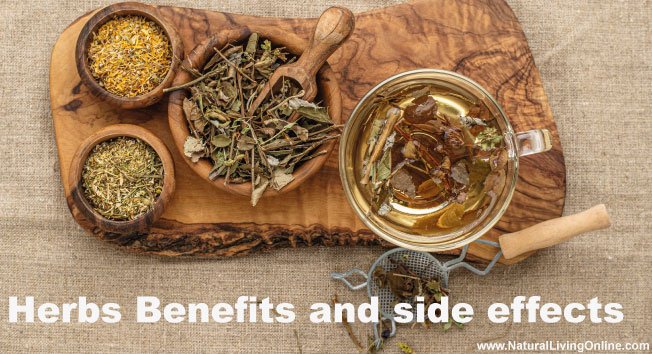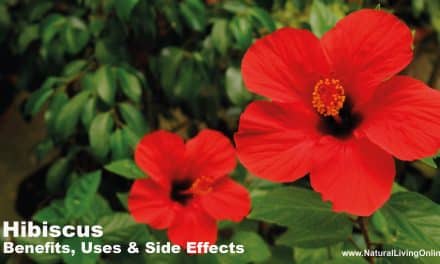An herb is a plant or part of a plant that is used for its flavor, scent, and/or medicinal properties. Herbs are generally propagated by seed or division. Herbs are classified into two main groups, culinary herbs and medicinal herbs. Culinary herbs are used in cooking to add flavor or aroma to food. Medicinal herbs have been used for centuries to treat various ailments.
Examples of culinary herbs
Basil, oregano, parsley, rosemary, sage, thyme
Examples of medicinal herbs
Aloe vera, echinacea, ginseng, St. John’s wort
Medicinal herbs can be consumed in a variety of ways, including
teas, capsules, tinctures, extracts, ointments, powders, infusions, decoctions
Therapeutic properties of medicinal herbs / botanicals
The therapeutic properties of medicinal herbs include but are not limited to:
Anti-inflammatory: Herbs that possess anti-inflammatory properties help to reduce inflammation. Inflammation is a natural process that occurs when the body is injured or infected. However, chronic inflammation can lead to a variety of diseases, such as arthritis, cancer, and heart disease. Some examples of anti-inflammatory herbs include aloe vera, echinacea, ginseng, and St. John’s wort.
Antioxidant: Antioxidants are substances that help to protect cells from damage caused by free radicals. Free radicals are unstable molecules that can damage cells, leading to inflammation and a variety of diseases. Some examples of antioxidant herbs include ginkgo biloba, green tea, and turmeric.
Anticarcinogenic: Herbs that possess anticarcinogenic properties help to prevent or slow the growth of cancer cells. Some examples of anticarcinogenic herbs include garlic, ginger, and green tea.
Antimicrobial: Antimicrobial herbs are used to kill or inhibit the growth of microorganisms, such as bacteria, viruses, and fungi. Some examples of antimicrobial herbs include echinacea, garlic, and ginger.
Antispasmodic: Herbs that possess antispasmodic properties help to relieve or prevent muscle spasms. Some examples of antispasmodic herbs include chamomile, passionflower, and valerian.
Analgesic: Herbs that possess analgesic properties help to relieve pain. Some examples of analgesic herbs include capsaicin, chili peppers, and willow bark.
Diuretic: Herbs that act as diuretics help to promote urination. This can help to flush toxins from the body and relieve conditions such as bloating and water retention. Some examples of diuretic herbs include dandelion, horsetail, and juniper.
Hypotensive: Herbs that act as hypotensive agents help to lower blood pressure. This can be beneficial for people who suffer from high blood pressure. Some examples of hypotensive herbs include ginger, hawthorn, and magnesium.
Sedative: Herbs that act as sedatives help to calm the nervous system. This can be beneficial for people who suffer from anxiety or insomnia. Some examples of sedative herbs include chamomile, lavender, and valerian.
Can herbs interact with other medications?
Yes. Herbs can interact with other medications. It is important to talk to your healthcare provider before taking any herbs, especially if you are taking other medications. Herbs can interact with other medications in a number of ways.
They can:
Increase the effects of the medication
Decrease the effects of the medication
Make the medication more or less effective
Cause unwanted side effects
What are the possible side effects of taking herbs?
Generally people think since herbs are natural plants so its safe to consume them, which is not true. Herbs have medicinal properties and they can interact with other drugs you may be taking. The possible side effects of taking herbs include but are not limited to:
Allergic reaction
Gastrointestinal upset
Nausea
Vomiting
Diarrhea
Headache
Dizziness
Insomnia
Fatigue
Rash
Always talk to your healthcare provider before taking any herbs. Some herbs can interact with other medications, and some have the potential to cause side effects. It is important to be aware of the risks before taking any herbs.
Who should avoid herbs?
Pregnant women and nursing mothers should avoid taking herbs. Children and adolescents should also avoid taking herbs unless directed by a healthcare provider. People with liver or kidney disease, as well as those taking medications that affect the liver or kidneys, should avoid taking herbs. Anyone with a known allergy to an herb should also avoid taking that herb.
10 most common medicinal herbs / botanicals and their uses:
1. Aloe vera – used to treat burns, wounds, and skin conditions
Aloe vera gel can be applied to the skin to treat burns, wounds, and skin conditions.
2. Echinacea – used to treat colds, flu, and other infections
Echinacea can be taken orally in the form of teas, capsules, or tinctures. It can also be applied to the skin in the form of ointments, creams, or lotions.
3. Ginseng – used to treat fatigue, stress, and other conditions
Ginseng can be taken orally in the form of teas, capsules, or tinctures. It can also be applied to the skin in the form of ointments, creams, or lotions.
4. St. John’s wort – used to treat depression and other conditions
St. John’s wort can be taken orally in the form of teas, capsules, or tinctures. It can also be applied to the skin in the form of ointments, creams, or lotions.
5. Chamomile – used to treat anxiety, insomnia, and other conditions
Chamomile can be taken orally in the form of teas, capsules, or tinctures. It can also be applied to the skin in the form of ointments, creams, or lotions.
6. Lavender – used to treat anxiety, insomnia, and other conditions
Lavender can be taken orally in the form of teas, capsules, or tinctures. It can also be applied to the skin in the form of ointments, creams, or lotions.
7. Peppermint – used to treat nausea, vomiting, and other conditions
Peppermint can be taken orally in the form of teas, capsules, or tinctures. It can also be applied to the skin in the form of ointments, creams, or lotions.
8. Rosemary – used to treat headaches, muscle pain, and other conditions
Rosemary can be taken orally in the form of teas, capsules, or tinctures. It can also be applied to the skin in the form of ointments, creams, or lotions.
9. Turmeric – used to treat inflammation and other conditions
Turmeric can be taken orally in the form of teas, capsules, or tinctures. It can also be applied to the skin in the form of ointments, creams, or lotions.
10. Valerian – used to treat anxiety, insomnia, and other conditions
Valerian can be taken orally in the form of teas, capsules, or tinctures. It can also be applied to the skin in the form of ointments, creams, or lotions.
Herbs are a popular way to treat various ailments, but it is important to be aware of the possible risks before taking any herbs. Always talk to your healthcare provider about any medications you are taking, as well as any herbs you are considering taking. Some herbs can interact with other medications, and some have the potential to cause side effects. It is important to be aware of the risks before taking any herbs.
References
Benefits, adverse effects and drug interactionsof herbal therapies with cardiovascular effects
This website does not provide medical advice.
All information provided on this website, and on associated social media networks, including but not limited to texts, images, and numbers are for general information purpose only. It is not intended as medical advice and it does not include all possible precautions, side effects, or interactions that may occur. Neither NaturalLivingOnline.com nor its author/founder take responsibility for how you use this information. Statements contained on NaturalLivingOnline.com have not been evaluated by the FDA. You should conduct thorough research via multiple sources and consult your physician or qualified doctor before using any essential oil or herbal remedy. Information on NaturalLivingOnline.com must not be relied upon for medical, legal, financial or other decisions.













